Pete Buttigieg Faces A Crucial Test Back Home
Pete Butttigieg has spent the past week dealing with a crisis back in South Bend. How he handles it could have a significant impact on his campaign.
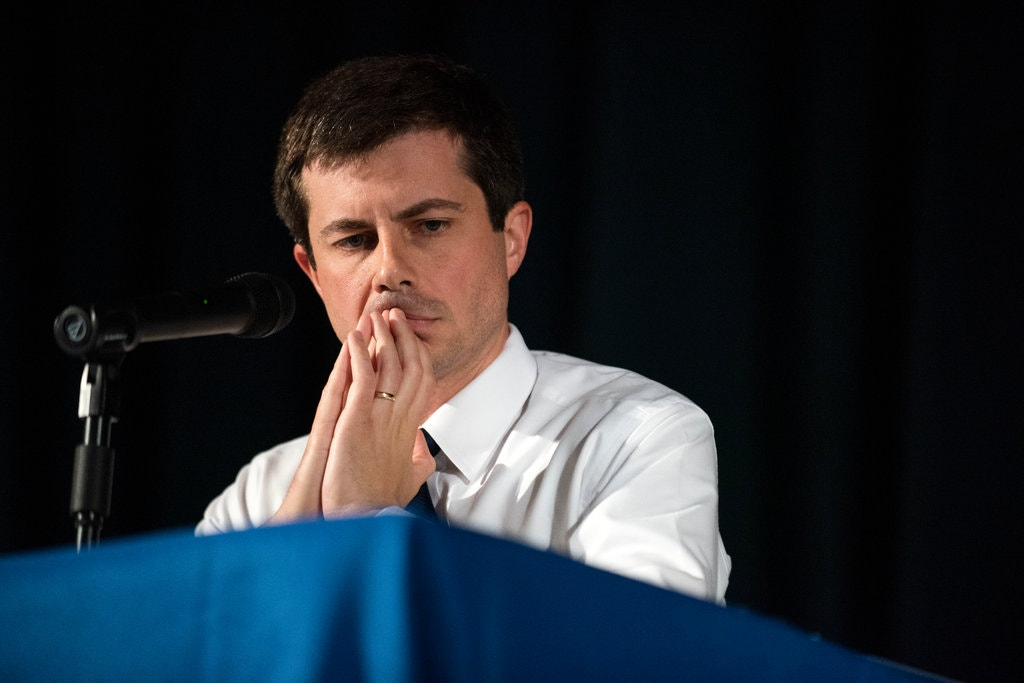
When he first entered the race for the Democratic nomination for President, South Bend, Indiana Mayor Pete Buttigieg was viewed understandably skeptically by political observers and analysts. While he had developed somewhat of an identity insider the Democratic Party, he wasn’t exactly well-known by most Americans and he faced the fact that nobody had ever gone from being the Mayor of any city to being President, or Vice-President of the United States. Given that, his entry into the race was, at least initially viewed skeptically.
As the campaign has gone on, though, Buttigieg has enjoyed a boomlet that has placed him in the same league as candidates such as Kamala Harris, Elizabeth Warren, and Beto O’Rourke and his fundraising have been rather impressive for a candidate that was relatively unknown when his campaign started. Currently, for example, Buttigieg is averaging 7.1% in the national RealClearPolitics average, 11.8% in the average in Iowa, 10.3% in New Hampshire. and 8.5% in South Carolina. This has put him in a stronger than expected position among the two dozen candidates for the nomination.
Now, though, Buttigeg is facing a test back home in South Bend and it could determine how Buttigieg’s fate proceeds better than any other test the campaign may put him through.
It all started a week ago Sunday when a South Bend police officer responding to a 911 call about vehicle break-ins in the parking lot of an apartment complex. The facts surrounding the interchange between Logan and O’Neill remains murky, largely due to the fact that neither O’Neill’s body cam nor the dashboard camera in his cruiser were turned on during the incident. This is apparently due to the fact that the body and dashboard camera system that the police in South Bend use does not activate either system until the cruiser’s police lights are turned on. According to reports, though, police investigators have said that when he arrived on the scene O’Neill found Logan partially inside a vehicle and that Logan approached the police officer with a raised knife. O’Neill then shot Logan when he apparently did not comply with instructions to drop the knife. The confrontation ended with Logan dead at O’Neill’s hand. This led to protests in the city that caused Buttigieg to cancel basically all of his campaign events for the week so he could return to South Bend to deal with the unfolding story.
In the ensuing period, Buttigieg has spent his time meeting with police, local community leaders, and constituents trying to soothe tensions, determine as best as possible what happened last Sunday, and to especially speak to the concerns of South Bend’s African-American community. Early on, it was apparent that this incident was quickly turning into a test of Buttigieg’s leadership skills and, most importantly, his ability to address the concerns of African-Americans when it comes to police violence. If the town hall that was held yesterday is any indication, it’s still very much an uphill battle for Buttigieg, and that could have a big impact on his fate in a Democratic primary where African American voters will play an important role:
SOUTH BEND, Ind. — It has been one of the biggest challenges for Pete Buttigieg since he began his improbable presidential campaign in January: Could the Harvard-educated mayor of South Bend, who often comes across like the brainy technocrat he once was as a McKinsey & Company consultant, build a following among black voters, one of the Democratic Party’s most vital constituencies?
Early signs were worrisome. Few African-Americans showed up at his campaign events, even in predominantly black areas of key primary states like South Carolina. His poll numbers among black voters were low to nonexistent. And he was shadowed by criticism from some black residents of South Bend about his firing of the city’s first black police chief and his handling of economic and housing issues.
But Mr. Buttigieg’s troubles intensified into a crisis on Sunday as he faced pointed questions and angry jeers from some African-American residents of South Bend at a packed town-hall-style meeting that he held in his latest attempt to respond to the fatal police shooting last week of Eric J. Logan, a 54-year-old black man.
Though many in the crowd clapped politely for Mr. Buttigieg, the meeting was dominated by members of the audience who loudly yelled their objections to the event’s format and to the mayor’s answers. When Mr. Buttigieg talked about the city’s requirement that officers use their body cameras, someone called out, “Why haven’t you been enforcing it, then?” When the mayor defended his record of engaging residents on policing issues, another person shouted, “We don’t trust you.”
At a few points Mr. Buttigieg asked the audience for quiet and to stop interrupting him. He listened to complaints about a pattern of police mistreatment of black people. He admitted failures. He promised to do better. But at the same time, there was little of the soothing emotional empathy that politicians strive to deliver in such moments.
“There’s a lot beneath the surface when it comes to trust and legitimacy around policing and race in our city,” said Mr. Buttigieg, who was seated on a stage next to the police chief, Scott Ruszkowski.
With Mr. Buttigieg just days away from his first Democratic presidential debate, on Thursday night, his difficulty quelling the frustrations and concerns among black residents here threatens to upend his well-crafted pitch about South Bend’s rebuilt downtown and overall economic strides.
(…)
Mr. Buttigieg’s apparent difficulty to soothe a crisis at home strikes at several raw points for his presidential campaign. His soaring ascent in the race has been propelled overwhelmingly by the enthusiasm of white voters, and especially college-educated whites — including some of the Democratic Party’s wealthiest political benefactors. He has repeatedly acknowledged that he is struggling to connect not just with black voters but also other minority groups that are pillars of the Democratic Party’s national coalition.
No candidate in recent years has won the Democratic Party’s presidential nomination, or even advanced far in the nominating process, without substantial support from African-Americans.
But it is not only black voters, like Mr. Buttigieg’s constituents in South Bend, who may regard the latest developments there as unsettling for his candidacy. White liberals have also grown intensely concerned in recent years with matters of racism and social justice, and they, too, may be watching Mr. Buttigieg’s handling of events in his city with a judgmental eye.
Up to this point, he has cultivated an unflappable political persona, defined by his cool intellect and seeming immunity to criticism or provocation from his critics. While his campaign carries the romantic theme of bridging a new political era, in person Mr. Buttigieg offers a results-over-emotion ethos informed by his career as a McKinsey consultant that is far from Bill Clinton’s “I feel your pain” mantra. During a tour of Mason City, Iowa, this month, Mr. Buttigieg spoke with the local mayor about macro-level municipal concerns such as downtown development and river cleanup, but spent comparatively little time with local residents talking about their concerns.
And at the town-hall-style meeting on Sunday, he was serious and solemn throughout — never losing his cool, but also never wearing emotions on his sleeve. Mr. Buttigieg sat behind a small desk on a stage in a vast high school auditorium, looking out on the crowd of city residents, listening intently and rarely raising his voice. The only other two people on stage were the police chief, who sat next to the mayor, and a local N.A.A.C.P. leader, who stood several feet away and whose attempts to maintain order were mostly unsuccessful.
(…)
Mr. Buttigieg’s record in South Bend has played a modest role in his candidacy so far; he has tended to campaign not on his granular achievements in public office but rather on sweeping thematic arguments about political reform and national renewal.
An initial round of scrutiny by the news media directed at his mayoral record in the spring — a number of news organizations, including The New York Times, examined his policies on policing, housing, economic development and more — did nothing to temper Democratic voters’ interest in that message. Voters and donors in the party have continued to embrace him, with steadily growing enthusiasm, more as a brainy spokesman for generational change than as a city executive with a complex portfolio of policies in his political résumé.
But now, the most challenging elements of governing a small, racially divided Midwestern city are no longer likely to be confined to the distant background of Mr. Buttigieg’s presidential campaign. And for the first time, voters well beyond South Bend may begin to assess Mr. Buttigieg not as a theoretical leader — a man that many can plainly imagine speaking with strength and sophistication from the Oval Office — but as an actual leader, straining in real time to address one of the most significant crises of his career.
And in that emotionally charged context, Mr. Buttigieg’s political identity is facing its most trying test so far, as the steely, cerebral manner that has made him a sensation on the campaign trail collides with a moment of mourning and anger in the city that has twice charged him with administering its government.
Watching part of the town hall meeting on CNN, one saw a different version of Pete Buttigieg than we’ve seen on the campaign trail. To a large degree that was because of the fact that he was speaking to an emotional and skeptical crowd of local residents, of course, but on some level he also seemed taken aback by the negative response he was getting from the residents and, often, frustrated by the fact that shouting by small groups of loud protesters were making it difficult to address questioners genuinely concerned with what happened in the Logan case and other issues surrounding the police department’s relationship with the minority population.
This entire incident is important for Buttigieg’s Presidential campaign for two reasons.
First of all, it’s rare that we get to see a candidate for President in action like this. We’re getting a real-time example of Buttigieg’s skills when it comes to crisis management and leadership. Partly, that is because many of our most recent Presidential candidates have either been legislators who have not had to act in an executive role in the manner that Buttigieg does as Mayor. In other cases, it’s simply because candidates in executive positions, such as Governors, who have run for President in the past have not had to face issues like this during their campaigns that actually require them to step off the campaign trail to take care of things back home in the manner that Buttigieg has been forced to do. For that reason alone, this crisis is giving us a peek at the kind of President Buttigieg might be if he managed to win the nomination and the General Election. For that reason alone, this incident is getting far more attention than an incident like this in a city the size of South Bend normally would.
The second reason this is important is the one mentioned in the article quoted above. So far, Buttigieg has had some difficulty connecting with minority voters, especially in South Carolina where African-American voters are a significant part of the electorate. In the most recent poll of voters in South Carolina, for example, Buttigieg’s support among African-Americans stands at just 17%, which is better than his performance with the overall population of respondents but still at the back of the pack, ahead of only Bernie Sanders who stands at 11%. On a national level, a national poll finds Buttigieg in single digits among minority groups as a poll. How he handles this crisis back home, then, is likely to play a big role in how he is perceived by minorities going forward, and in many states, it could prove to be crucial. Any misstep on his part could end up being significant.
Beyond the perceptions of minority voters, the manner in which Buttigieg handles this crisis is likely to have an impact on other parts of the Democratic Party’s base. The issues surrounding police violence toward African-Americans that reaches across racial lines in the party so any perception that Buttigieg isn’t handling this properly is likely to harm him politically even outside the African-American population in states such as South Carolina.
All of this comes, of course, just days before Buttigieg appears at the first Presidential debate of the 2020 campaign cycle in Miami. Buttigieg will be in the second debate on Thursday night and he’ll no doubt be asked about this and challenged by both debate moderators and his fellow candidates. This will be this first time that he will have a chance to discuss this issue before a national audience and it could have serious implications for his campaign going forward.

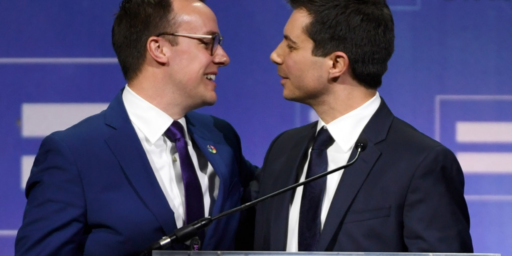

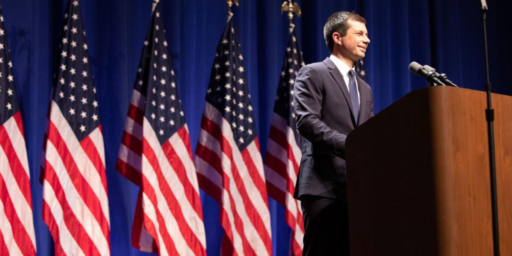
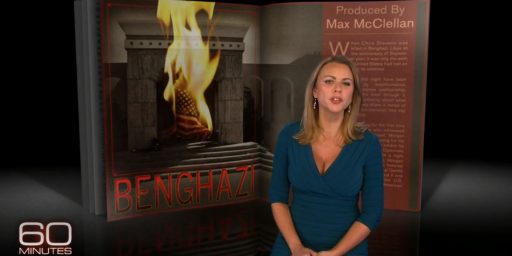
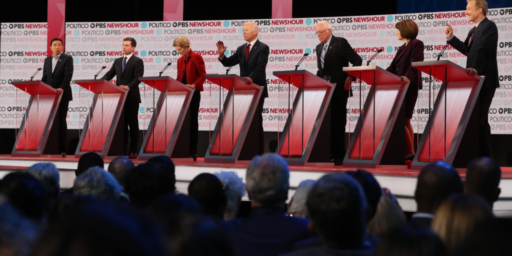
Body cameras are useless if they aren’t turned on. Worse than useless because it creates a suggestion of something wrong. If we assume good faith on the officer’s part, we are still left with a problem of the camera not turning on automatically, and not being manually turned on — a user interface problem of them being hard to use and easy to forget.
What are the arguments for not just having them on at all times? I’ve worked in office buildings with cameras everywhere — no microphones though — so I’m not sure I buy into protecting the officer’s privacy.
There have been a couple of complaints about the officer in the past, but nothing substantiated, and video likely would have cleared him here.
As far as Buttigieg goes — his calm analytical demeanor isn’t doing him favors here.
This would have been a great time to rattle on in his calm, analytical manner about how they are measuring compliance with the body cameras, how those numbers are moving, and what steps they are taking to raise those numbers. Even in cold, analytic mode, it would have shown he has been taking it seriously. And it’s an argument that is gong to come up.
I’m not impressed by this.
Also, if you follow the link to the South Bend Tribune, you will see a bunch of reaction emojis with counts at the bottom.
https://www.southbendtribune.com/news/publicsafety/south-bend-cop-in-fatal-shooting-did-not-have-body/article_83d293e0-b7cf-56cc-a19e-e9ea03ff4ec4.html
People are horrible. They are clicking the laughing emoji.
That’s really very clever. I wonder who thought up that and if they realize what a really slick dodge it is. That person would really be a key agent in damage control for any administration’s DOJ, but particularly for the current one–not that Trump is going to take any advice on damage control.
(Note: The observances above should not be taken as commentary on Mayor Buttigieg except to the degree that he was instrumental in shaping policy or practice as it relates to police bodycams and car cams. I have no dog in the fight of who the Democrats nominate.)
@Gustopher: Additionally, the sidebar poll has 58% as not approving of the way the mayor is handling the issue. Not a good sign.
I saw some of the news reports of this meeting. People were shouting a lot if the time, so it was hard for Pete to make any comments. These people do not help things by doing all this screaming out. Other people come and behave. They are there to listen and follow the procedures for being heard. It is sort of like the people who break in lines at theme parks or restaurants: self only.